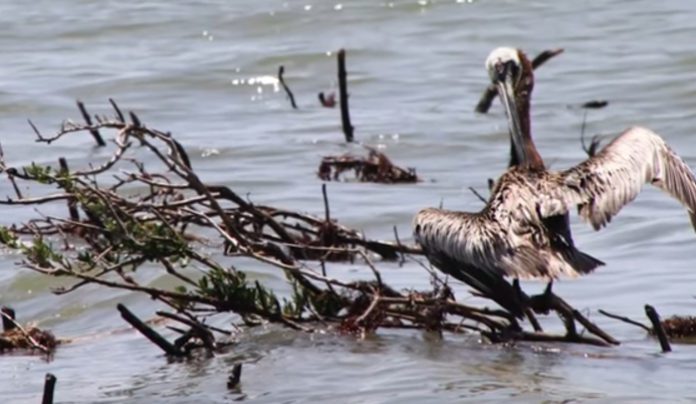In 2010, Deepwater Horizon created what has been regularly called the worst environmental disaster in the United States. In total, nearly 5 million barrels of crude oil were spilled into the Gulf of Mexico, affecting marine life, tourism, and personal livelihoods. BP has paid billions of dollars in order to help lessen the environmental impact and employ affected workers, but the impacts from the spill of over 200 million gallons of oil still remains.
Why the Oil Spill from Deepwater Horizon Was So Disastrous
Starting in 2011, researchers began to find deceased baby dolphins washing ashore. It was the first birthing cycle after the oil spill and more than 10 times the usual number of marine life deaths were occurring. In total, more than 400 dolphins were believed to have died because of exposure to crude oil, either from liver and lung cancer, low blood sugar, or even because there was oil in their bodies.
It wasn’t just the oil that was the problem with Deepwater Horizon either. The cleanup efforts distributed numerous chemicals and dispersants into the Gulf of Mexico, having a dramatic impact on marine life as well. Fishermen reported seeing fish and crabs with numerous deformities. This included a lack of eyes, the presence of lesions, and changes to the shells.
Some crabs were much smaller and had no claws.
Prior to the oil spill, fewer than 0.1% of the observed marine life had such changes in the Gulf of Mexico. Just one year later, more than 20% of the fish showed changes. In some expeditions, the counts were as high as 50%.
The Most Dangerous Outcome? Food Chain Entry
Dead zones and other issues of water life were created by methane release, depleting local oxygen supplies. The most disturbing issue, however, was oil and chemical residues from the Deepwater Horizon Oil Spill entering the food chain. Researchers were finding that carcinogens and chemicals were at depths of 3,300 feet or greater, entering the phytoplankton that is consumed by other sea life.
The fear is that these contaminants are continuing to work their way up through the food chain toward human consumption.
The loss of life on Deepwater Horizon is tragic and should never be forgotten. The consequences of the oil spill should never be forgotten as well.
Crystal Lombardo is a contributing editor for Vision Launch. Crystal is a seasoned writer and researcher with over 10 years of experience. She has been an editor of three popular blogs that each have had over 500,000 monthly readers.


















